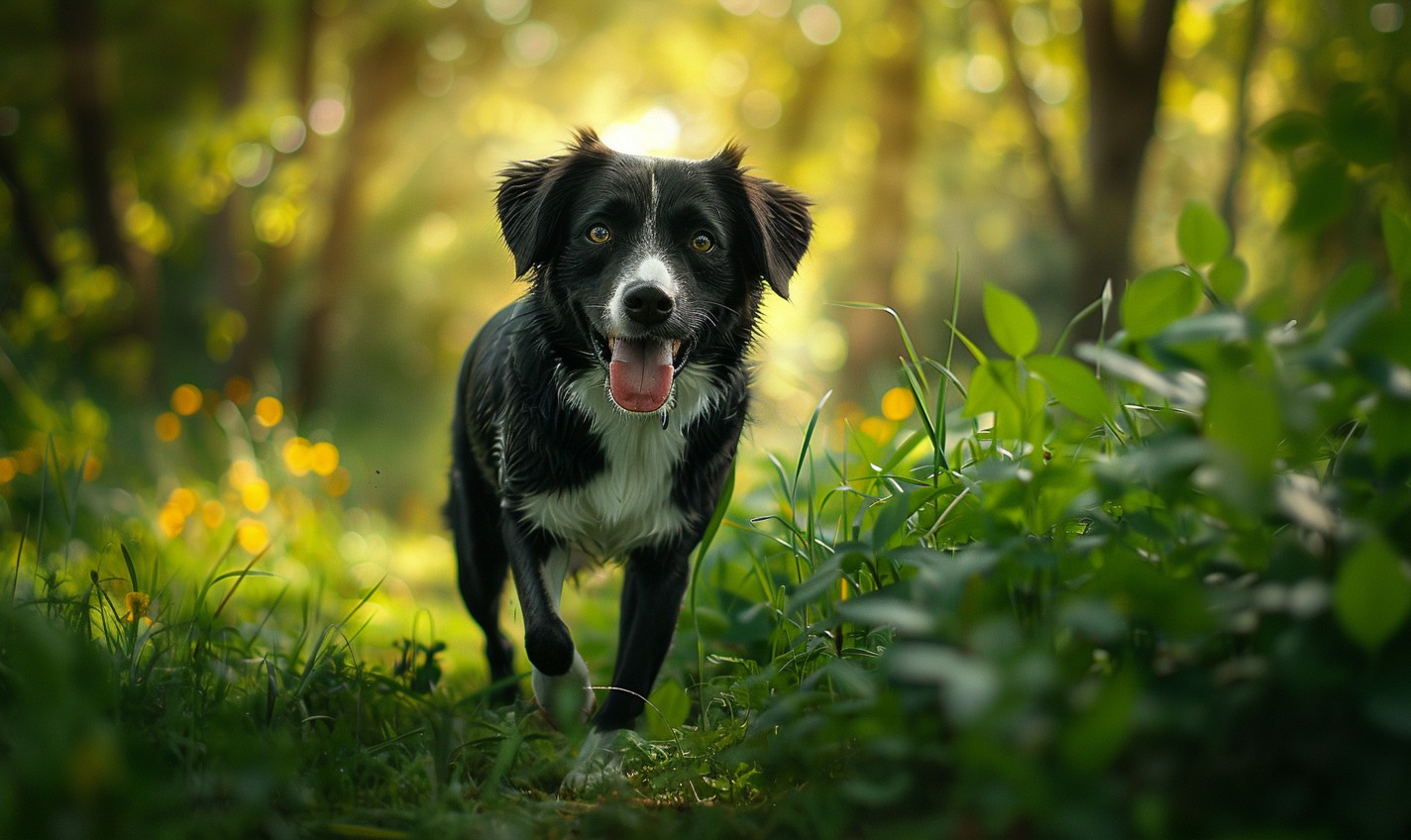A combination of Labrador Retriever and Border Collie, we first started seeing the Borador come onto the scene in the early 2000s. This is a popular companion dog with a strong will to work. As such, this isn’t a breed for everyone. Here’s everything you need to know if a Borador is on your next-pet radar.

Complete Guide to the Borador Dog Breed
The Borador, or Border Lab, is not a dog that you want to bring home on a whim. They are very active dogs and will require very active owners to keep them well-trained and happy.
FAST FACTS
Looking for a simple rundown of what you can expect? Here’s the skinny:
HISTORY AND ORIGIN OF THE BORADOR DOG
Both the Labrador and the Border Collie have been amongst the most popular dog breeds for years. Though not much is known about the history of the mix, we do have quite a bit of information about the two breeds individually.
The Border Collie’s ancestry goes back hundreds of years to the Scottish Highlands. This dog was bred for the herding of livestock. To this day, that pedigree remains. Border Collies are still one of the most popular breeds for farmers and ranchers.
While the Labrador is also a very active breed, it’s most well-known for its popularity among hunters. The Labrador Retriever dates back to sometime between the 1500s and 1800s in Newfoundland. Even back then, it was bred to be the perfect gundog.
Somewhere along the way, someone had the idea to combine the two. Quite possibly bred to create a family-friendly, active and smart dog, we started seeing the Borador rise in popularity in the early 2000s.

Borador Physical Characteristics & Appearance
The physical characteristics of any mixed-breed dog ultimately depend on which genes come through the strongest. Let’s look at each breed individually, then we’ll put it all together.
Border Collie
As we have already discussed, the Border Collie is a very active dog with strong herding instincts. They are considered a medium-sized dog. According to the AKC, this collier usually reaches a height of just 18-22 inches and weighs somewhere between 30 and 55 pounds. They come in almost everything color combination with medium-length, wavy coats.
Border Collies are known to be very affectionate dogs with a strong family bond. They can be good around other pets and children, but they must receive adequate training to eliminate that herding instinct. Anything fast and fleeing may be seen as prey to an untrained Border Collie.
These dogs are workaholics and need a lot of exercise and mental stimulation.
Labrador
The lab is traditionally a little bit larger than the collie. This breed is usually around 22 to 25 inches tall and 55 to 80 pounds by AKC standards. Labrador Retrievers are found in three standard colors; yellow, chocolate brown and black. They have shorter coats.
Like the collie, labs are very active and affectionate. Unlike the collie, however, they don’t have that instinctual herding nature. That’s a good thing when looking for a household pet. They are best known for being naturally good around kids and other pets.
Borador
When you combine the lab and Border Collie, you can get a little of everything though you can definitely expect a dog with a long snout. Boradors are still in the medium dog size category, though they tend to stay on the smaller size when bred. Other than that, their appearance can vary wildly. They may have shorter or longer coats. They can have color combinations in every variety.
BORADOR TEMPERAMENT
Both the lab and the Border Collie are very active dogs. Not surprisingly, their offspring will be as well. As a Borador owner, you will need to provide plenty of training, exercise and activity to keep these dogs happy. If you don’t, they can easily become destructive. This is most often displayed as chewing, excessive barking and chasing behavior. So, you will want to provide plenty of puzzles, long walks and training.
For the happiest Borador, expect to spend a good hour or two per day being active. The good news is they enjoy a variety of activities. You can work off that energy hiking, walking, running, swimming, playing fetch and more. They also love agility training.

ARE BORADOR DOGS EASY TO TRAIN?
If you have researched how to train a borador, you already know not to mistake “easy to train” for “naturally well-behaved.” While these dogs respond well to positive reinforcement and seek their owners’ approval, when left to their own devices they can be a nuisance.
Instinctively, they long to herd and hunt. That can come out as bad behavior such as chasing and nipping smaller family members if it isn’t channeled.
COMMON HEALTH ISSUES FOR BORADORS
Overall, Boradors are fairly healthy dogs. However, there are a few things to watch out for, especially as your pup gets older.
1. Hip and Elbow Dysplasia: Like most active dogs, hip dysplasia is a common ailment among Boradors. All of that running and jumping takes a toll on the joints. I recommend adding a good supplement, like Vet Naturals Hemp & Hips, to your dog’s daily diet.
2. Obesity: Both Border Collies and Labradors are highly food-motivated breeds, and without proper diet and exercise, they can easily gain weight. Obesity can exacerbate joint issues and lead to other health problems like diabetes.
3. Eye Problems: Boradors can inherit a predisposition to certain eye conditions, such as progressive retinal atrophy (PRA) and collie eye anomaly (CEA), which can lead to vision loss. Cataracts are also a common concern as this breed ages.

WHERE TO FIND BORADOR PUPPIES
We always recommend adopting from an animal shelter or rescue organization whenever possible. There are so many dogs out there in need of a forever home and loving family. If you have your heart set on a Borador, however, and are unable to find one through a local rescue organization, you can always try something like Petfinder.
You can also try breed-specific rescues:
FAQs ABOUT THE BORADOR DOG
Are Boradors Good Apartment Dogs?
The simple answer is, “No.” When it comes to the Borador, the bigger yard the better. They need more exercise and mental stimulation than most breeds and they love to be outdoors. Confined living quarters and lack of activity could lead to an unhappy and destructive Borador.
How much exercise does a Borador need?
Boradors are very energetic and require a significant amount of daily exercise. They thrive on activities such as walking, running, playing fetch, and agility training. At least one hour of vigorous exercise per day is recommended.
Do Boradors shed a lot?
Boradors have a moderate shedding level. Regular brushing can help manage shedding and keep their coat healthy.
Boradors are best suited for active individuals or families who have the time and energy to devote to their exercise and training needs. They thrive in environments where they can be part of the family activities. If you’re looking for a loyal, energetic, and intelligent dog that enjoys being active outdoors, a Borador might be the perfect match for you.
Owning a Borador can be a rewarding experience, providing you with a loyal and loving companion for many years. Their adaptable and friendly nature makes them a great addition to many homes, but remember, they do best with plenty of space to play and an active lifestyle.
Do you have a Bordador? Share your thoughts and experiences below!

